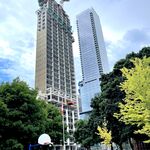TOperson
Active Member
Speaking of reading comprehension, you didn't answer my question. But by your other post (the one that calls condos a nightmare) I'll infer that you believe that rental buildings and houses are better than condos when it comes to long term maintenance. You have yet to present any evidence of that.
Do you hear that "whooshing" sound? That's my point, going right over your head. For a second time.
Let's try this once more:
If things go wrong when you rent, you can always just up and leave.
When you own a house, you can just go ahead with whatever repairs are necessary - or not, if you're willing to live with the consquences.
With a condo, you have to dance with the management board, who may well be totally incompetent. This can effectively destroy the value of your investment, as has already happened with some owners in older condo buildings. Under current laws (and who knows if/when the laws will get better) a condo owner has little recourse. That's a hell of a risk to take with hundreds of thousands of dollars of your own money - especially when you plan to retire on that money, as many people do.
If you can't see that the ownership/control/risk issues are a major qualitative difference, with big long-term financial implications, you are probably just the sort of mark that a condo developer is looking for. Be careful out there.




